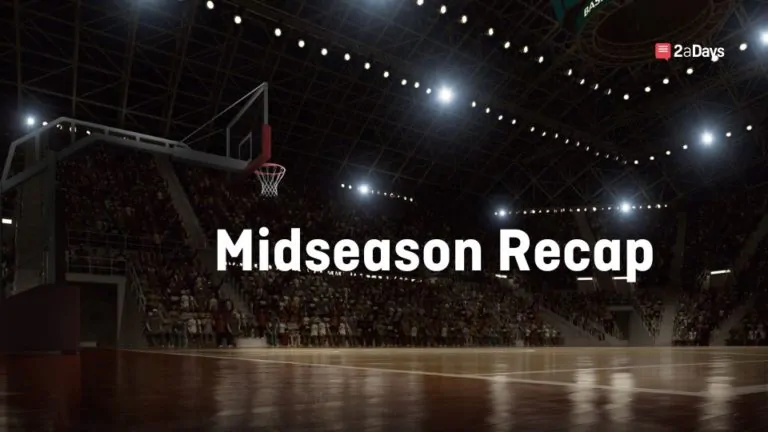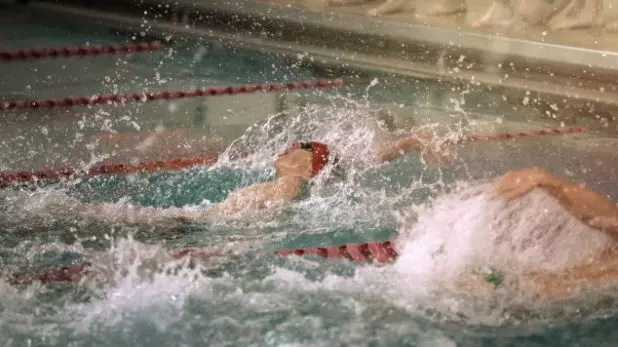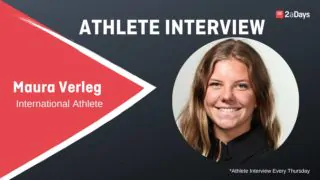Edited by Jaime Evers
Spain has the second most international student-athletes in the United States, following Canada. Every athlete in Spain talks very highly about the United States, the NCAA, and the opportunity of getting a degree while playing the sport they love. Teresa Zorrilla, a Spanish tennis player, heard great things about the opportunities in the United States and decided she wanted to come to the United States to study and play tennis at the next level. She contacted a recruiting company and started the process at the end of her last year of high school. Although her experience with the NCAA wasn't as she expected, she agreed to share her Recruiting Horror Story™ with us.
Teresa shared that being an international student makes the recruiting process lengthier and more challenging than what American students experience. The transcripts of each country are completely different from what is seen in the United States. As we all know, the GPA in the United States is scored on a standardized scale from 0 to 4. In Spain, the GPA goes from 0 to 10; Spaniards therefore have to convert their GPA from the Spanish grading system to the American grading system.
Spaniards Don't Get Their Diplomas Until Two Years After Graduating
Another key difference between the Spanish and the American education systems is that Spaniards don't get their diploma until two years after graduating. Therefore, if someone graduated high school in 2018, they likely wouldn't get their diploma until 2020. This is because all of the diplomas are signed by the King of Spain, which takes up to two years due to the sheer volume of graduates every year. The NCAA and most schools require the diploma for a student-athlete to be eligible and accepted into a school. This made Teresa's case different from American student-athletes, and not necessarily in a good way.
Recruiting agencies in Spain explain to their clients that they need to ask high school officials for a certification paper including their GPA that states the student has graduated from that high school. Teresa and her parents went to her high school to get this certification and the officials agreed, but when Teresa sent the certificate to her recruiting agency for verification, the agency said that it was missing her GPA. Teresa went back to the high school to ask if they could add her GPA on her certificate, to which they responded: “We don't put the GPA in any student's certification, so we are not going to add it in yours. You are not special.”
Teresa called her recruiting agency and explained the situation. The agency permitted her to send the certification without the GPA, so she submitted all the required papers to the NCAA Clearinghouse and just had to wait to see if they would deem her eligible.
Related: What to Expect as an International College Athlete
Being Ineligible to Compete
Teresa wasn't eligible to compete or travel during her first year because not enough of her classes would transfer to make her eligible. She could only practice with the team. Teresa claims: “Since I didn't have the GPA in the certificate, the NCAA computed their own GPA,” but the GPA that the NCAA computed was different from the GPA she had from her high school. Teresa said the NCAA was “Counting [some] courses that should have counted and they didn't count the [other] ones that should have been counted. This was very frustrating.” Teresa's future coach started to work with compliance to figure out ways to appeal the decision. They knew the classes the NCAA didn't count, and they were trying to make those classes count. If they would count even one more class, she would be eligible.
Nothing worked, so Teresa came to the United States knowing she was not going to be able to compete or travel with the team, but only practice: “It was so hard the first months trying to get used to the language, the country, the culture, the school, and everything, especially when my team would leave on a Thursday for a tournament and they were not coming back until Sunday night. It was tough. I felt so lonely when my team was away.”
When the team had a home match, she wasn't able to warm-up with or be around the team. She had to be in the stands as if she was a spectator. “This was so hard for me. It was like I wasn't part of the team.”
Facing the Language Barrier
Another major challenge Teresa faced as an international student was the language barrier. She repeated one such negative experience during her first week of classes: “I was in the line to get my physical done and one doctor came to me and asked me something… and I didn't understand what he said, so I said that I didn't understand and he asked another person in the line. Then, a nurse came to me and asked me something as well and I understood what she said but I was taking a bit longer to reply because I was thinking what to say, and the guy that was behind me said to the nurse to not even try to talk to me because I had no idea of English. I got so mad at that moment and I turned my head to him and told him that I understood what she said perfectly.” Teresa said, however, that once she began to overcome the language barrier, she made friends and realized many new opportunities.
Related: Former Boston College Men's Soccer Coach Offers Advice to International Students
“I Was Having the Time of My Life”
Teresa's experience in the USA was a short one because she left after her freshman year. Even though she never got to compete in college tennis, she remembers her freshman year as a great one: “Once I got used to the culture, the school, and the language and met new friends, everything was great. I was having the time of my life. There are so many things to do and all the people are so nice.”
Teresa's Recommendations
For Teresa, the recruiting process wasn't easy. She started it very late and she was facing obstacles every step of the way. “I think that the recruiting process is way easier for Americans and I also think that the NCAA checks on the international students a lot more than American students because I know some other people that are international, and they have had problems with the NCAA” Teresa explains.
The first thing Teresa suggests international students should do is reach out to a recruiting agency. “Although you have to pay to have a recruiting agency, it is worth it. I was lucky that my recruiting agency helped me a lot with the process. Without them I would have been so lost.”
After all her experiences, Teresa recommends 100% to all international players to come and study in the United States: “It is a great opportunity that everyone must experience. It is a train that just passes once in a lifetime and everyone should take advantage of it. I didn't have good luck in my recruiting process, but it was on me for not trying harder to convince my high school officials about adding my GPA to my certificate. If I would have had a GPA in my certificate, I wouldn't have had any problem. I would advise all international students to put their GPA in their certificates and to work with a recruiting agency because they are experts in helping student-athletes go to the United States.”
* Originally published on August 22, 2021, by Alejandra Barcelo-Almoyna







